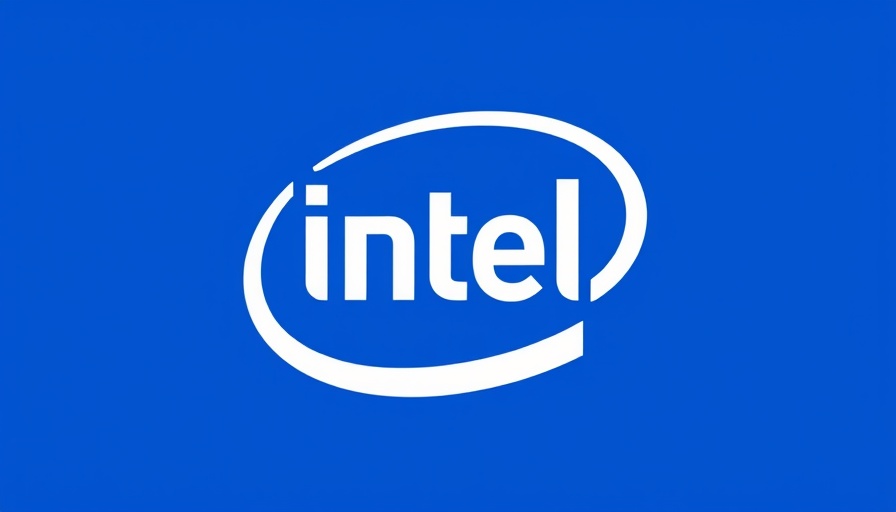
Intel's Ambitious AI Chip Strategy: A Competitive Edge Against Nvidia
As the race for artificial intelligence supremacy heats up, Intel has taken significant steps to reclaim its position in the market with a hefty $5 billion investment in AI chip technology. The company's new Panther Lake processors, built on cutting-edge 18A manufacturing technology, aim to challenge the current leader in the sector: Nvidia. With vast resources backing this initiative, can Intel succeed where it previously faltered?
Understanding the Technological Leap
The Panther Lake processors are touted as a breakthrough for Intel, featuring innovations such as gate-all-around transistors for heightened efficiency and backside power routing aimed at reducing interference. This technology is designed to enable consumer PCs to perform advanced AI workloads more efficiently than current alternatives, setting the stage for a potential transformation in the AI computing landscape.
The Economics of AI: Can Intel Overcome its Losses?
Despite these promising technological advancements, Intel finds itself amidst fiscal challenges, having reported losses for two consecutive years. The company acknowledges that turning these innovations into profitable products will be essential for its recovery. The backing of major investments, including support from the U.S. government to boost domestic chip manufacturing, could provide Intel with the necessary leverage to bridge these economic gaps.
Potential Roadblocks in Intel's Path
While Intel's ambitions appear lofty, the company faces stiff competition from established players like Taiwan Semiconductor Manufacturing Co. and Samsung Electronics. These firms dominate the foundry sector and pose a significant threat to Intel's revival plans. Intel's Foundry head, Kevin O'Buckley, has been candid about the urgency of delivering results, encouraging investors not to place their faith in Intel's promises until it can deliver tangible outcomes.
Looking Ahead: Market Opportunities and Predictions
The success of Intel's Panther Lake chips will likely define the company's future, creating ripple effects in the industry. If these chips effectively diminish Nvidia's hold on the market, we could see a paradigm shift in AI hardware innovation. Factors such as consumer demand for AI-capable devices and the global push for semiconductor independence will also play significant roles in shaping this future.
As AI continues to evolve, the competition among chip manufacturers will intensify, placing a premium on performance and efficiency. With Intel's current strategies, the upcoming months could see significant shifts in market dynamics, especially as their new offerings launch in laptops early next year.
Final Thoughts: Why Intel Matters to AI Enthusiasts
For AI enthusiasts, Intel's progress presents vital insights into the tech landscape. A rejuvenated Intel could foster healthy competition, driving innovation across the board. As consumers, developers, and businesses, understanding these dynamics is essential for anticipating the future of AI technologies and their applications.
If you want to keep up with these developments and the broader implications for the AI market, consider following the progress of Intel's advancements and the ongoing battle with Nvidia. Staying informed on these evolution trends can guide decisions in AI development and investments.
 Add Row
Add Row  Add
Add 




Write A Comment